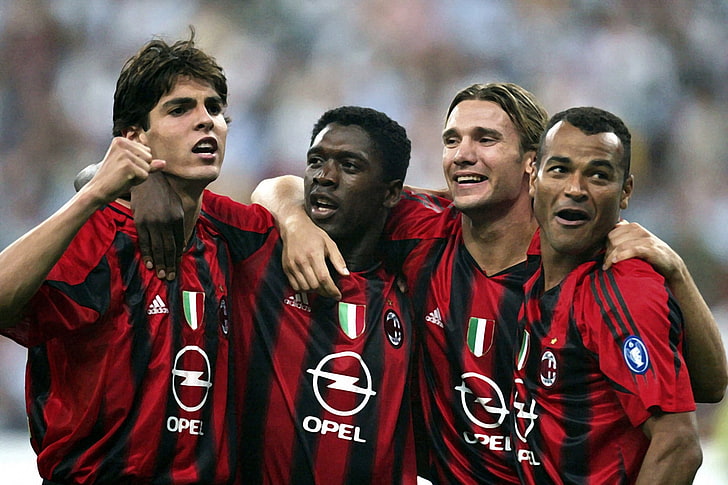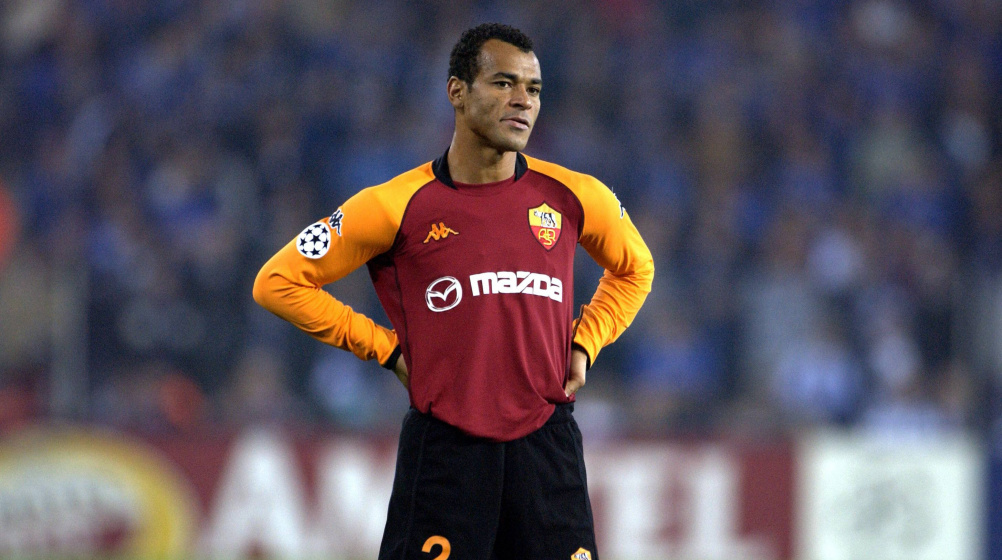Marcos Evangelista de Morais
Marcos Evangelista de Morais

Cafu, whose full name is Marcos Evangelista de Morais, was born on June 7, 1970. He is a retired Brazilian professional footballer widely recognized as one of the greatest full-backs in the history of the sport. Cafu played as a right-back and was known for his exceptional pace and energetic attacking runs down the right flank. He holds the record for the most appearances for the Brazil national team, with an impressive 142 caps.
Throughout his club career, Cafu achieved success in Brazil, Spain, and Italy. He is particularly renowned for his contributions during his stints at São Paulo (1989–1995), Roma (1997–2003), and AC Milan (2003–2008), where he made history with notable achievements. In addition to these clubs, he also had brief spells with Zaragoza, Juventude, and Palmeiras between 1995 and 1997. In 1994, Cafu was honored as the South American Footballer of the Year. In 2004, he was included by Pelé in the FIFA 100 list, recognizing him as one of the world's greatest living players. Cafu was named to the FIFPro World XI in 2005, and in 2020, he was part of the prestigious Ballon d'Or Dream Team.
Cafu represented Brazil in four FIFA World Cups from 1994 to 2006, a unique accomplishment as the only player in history to appear in three World Cup finals, both overall and consecutively. He played a crucial role in Brazil's victories in the 1994 and 2002 World Cup editions, captaining the team in the latter and lifting the coveted trophy. Cafu also participated in four editions of the Copa América, winning the title twice in 1997 and 1999. Additionally, he was part of the national side that triumphed in the 1997 FIFA Confederations Cup.
During the 1994–95 season, Cafu joined Spanish side Real Zaragoza, contributing to their success in winning the 1995 Cup Winners' Cup, although he was unavailable for the final due to injury. He then returned to Brazil, briefly playing for Juventude after a stint with Palmeiras in 1996. In 1997, Cafu made his way back to Europe, this time joining Roma. During his tenure with the club, he played a pivotal role in winning the Scudetto in 2001 and became known as "Il Pendolino" ("The Express Train" or "The Commuter"). Despite reaching the Coppa Italia final in 2003, Cafu made a move to AC Milan, turning down an offer from Yokohama F. Marinos in Japan. With Milan, he secured his second Scudetto in 2004 and his second Supercoppa Italiana. He also played in the UEFA Champions League final in 2005.
In the 2006–07 UEFA Champions League, Cafu expressed a desire to avoid facing his former club Roma in the quarter-final, a wish that came true as Milan drew Bayern Munich instead. This campaign ended with Cafu finally obtaining a Champions League winners' medal in a rematch of the 2005 final.
Cafu extended his contract with Milan until the end of the 2007–08 season. During this period, he won another UEFA Supercup and his third club-level world title, securing his first FIFA Club World Cup. On May 16, 2008, it was announced that Cafu, along with compatriot Serginho, would be leaving Milan at the end of the season. In his last game, he scored a goal in Milan's 4–1 victory over Udinese. Despite his departure, the door was left open for Cafu to return to work for the club, as stated by Milan vice-president Adriano Galliani.
Cafu holds the remarkable distinction of being the most-capped Brazilian men's player in history, amassing a total of 142 appearances for the national team. His international career spanned from 1990 to 2006, and he played a pivotal role in Brazil's success in major tournaments.Cafu earned his first cap for Brazil in a friendly against Spain on September 12, 1990. Initially playing sparingly for the national team in the early 1990s, he was part of the 1994 World Cup squad as a substitute. His breakthrough moment came in the final against Italy, entering the match in the 22nd minute due to an injury to Jorginho.
After this pivotal moment, Cafu became a regular fixture in the starting lineup for Brazil. He played a significant role as they clinched victory in the Copa América in 1997 and 1999, as well as the 1997 FIFA Confederations Cup. Cafu also reached the pinnacle of world football by participating in three World Cup final matches, a unique accomplishment. Brazil emerged victorious in two of those finals, in 1994 and 2002. In the 1998 World Cup, Brazil reached the final but were runners-up.Cafu's impact on the national team extended beyond his on-field contributions, as he became a symbol of Brazil's footballing excellence. His leadership and skill at right-back earned him the captaincy, and he remains an enduring figure in the history of Brazilian football.
Cafu's international career had its share of ups and downs, including a notable journey to the 2002 FIFA World Cup where he played a crucial role in Brazil's success. The qualification period for the 2002 tournament was challenging for Brazil, marked by controversy and a change in team leadership.During this qualification phase, Cafu faced heavy criticism from coach Vanderlei Luxemburgo, who even stripped him of the team captaincy after he was sent off in a qualifier against Paraguay. However, Luxemburgo's tenure was short-lived, and Luiz Felipe Scolari took over as coach. Initially, Scolari appointed Emerson as the new captain, but an injury to Emerson led to Cafu regaining the captain's armband.
In the 2002 World Cup final against Germany, Cafu stood on the victory podium after Brazil's 2–0 win. As he raised the World Cup trophy, he shouted to his wife, "Regina, eu te amo!" ("Regina, I love you!"). Cafu, always proud of his roots, had also written "100% Jardim Irene" on his shirt as a tribute to his upbringing.While the 2002 World Cup marked a triumphant moment for Cafu, the 2006 tournament brought disappointment for both him and Brazil. The team exited in the quarter-finals after a 1–0 defeat by France. Coach Carlos Alberto Parreira faced criticism for relying on aging players like Cafu and Roberto Carlos. Cafu, at 36 years old, was among those players criticized. Despite the challenges and criticism, Cafu expressed his interest in participating in the 2010 World Cup. However, he ultimately retired from football in 2008 and did not pursue a return to the international stage.
References
- "2006 FIFA World Cup Germany: List of Players: Brazil" (PDF). FIFA. 21 March 2014. p. 4. Archived from the original (PDF) on 10 June 2019.
- ^ "Cafu". soccerway.com. Retrieved 1 July 2022.
- ^ "Cafu". AC Milan. Archived from the original on 15 April 2008. Retrieved 1 July 2022.
- ^ Matchett, Karl (1 March 2013). "15 Best Attacking Fullbacks in World Football History". Bleacher Report.
- ^ Cooper, Max (12 August 2020). "The Best Right-Backs of All Time". 90Min.
- ^ Hosangadi, Aditya (5 May 2020). "20 Best defenders of all time". Sportskeeda.
- ^ "Pele's list of the greatest". BBC Sport. 4 March 2004. Archived from the original on 19 August 2010. Retrieved 22 November 2013.
- ^ "FOOTBALL Defence is central to Arsenal's hopes". Independent. 10 May 1995. Retrieved 12 May 2020.
- ^ "Cafu: "It's true that Milan were celebrating at half-time against Liverpool in Istanbul"". fourfourtwo.com. 31 May 2019. Retrieved 12 May 2020.
- ^ "Roma clinch Italian title". BBC Sport. 17 June 2001.
- ^ ""Commuter" Cafu finally arrives at his destination". Archived from the original on 21 May 2008. Retrieved 24 July 2018.
- ^ "AC Milan 3–3 Liverpool (aet)". BBC Sport. 25 May 2005. Retrieved 28 November 2022.


















































